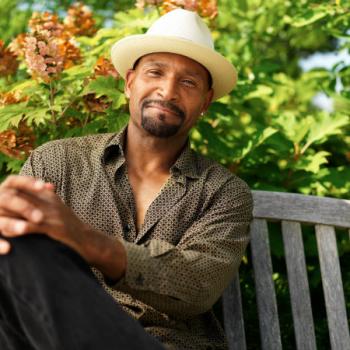Due to my book Seven Reasons Women Stay in Abusive Relationships and How to Defeat Each One of Them, I get a lot of letters from women in abusive relationships. This is for them and anyone else in their situation. Though I’ll use “she” pronouns for the abused and “he” pronouns for the abuser, what I’m saying here applies equally to men and women.
Pretty much the hook that keeps you committed to the relationship in which you are being emotionally and/or physically abused is that, despite it all, you love the man who abuses you.
You love him because you see in him a worthy nobility—a true and moving lovableness—that he himself is largely unaware of. That good part of him is the part you love. It’s the part of him that you keep hoping will grow, subsume, and vanquish whatever terrible thing within him that keeps compelling him to hurt you.
But the really big problem with that is this: When it comes to perceiving your abuser, you’re confusing him with you.
You see his inner goodness, yes. You see his vulnerable little boy. You see the man he could be.
He, on the other hand, sees, feels, and senses no such thing within himself.
He doesn’t because he can’t.
And why can’t he? Because by treating you as he does, he necessarily severs from himself all relationship with his core inner goodness. He destroys all pathways of communication between his surface self and that buried very deeply within him which could, in fact, save both you and him.
You can’t make him know, experience or access his better self. And he’s so heavily invested in being unaware of that self—so engaged in the facade that he’s constantly orchestrating, so committed to the drama of the persona that he’s certain constitutes his entire self—that he has no appreciable reason to stop, tear apart his own life, and force himself to face anything within himself that would condemn him for what he’s done and who he’s become.
He’s the engineer of his train. And he’s not about to look back and see what he’s dragging behind him. He’s just going to keep going furiously forward, ever forward.
And as long as you stay on his tracks, you’re going to keep getting hit by him.
If you really love your abuser—if it’s really and truly about him rather than you—then leave him. (And I know that’s not as easy as it sounds: see Seven Reasons.) All you can do for him—the very best you can do for him—is to stop playing such a vital supporting role in the terrible movie of his life. It’s not likely that he’ll ever hear the voice of goodness inside of him: he’s too committed to his chaotic cacophony for that. But if he has any chance of ever hearing that voice, he’ll only do so when, all around him, it’s suddenly become very quiet.

















